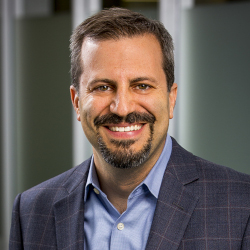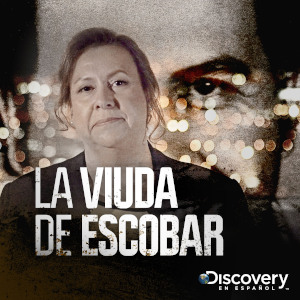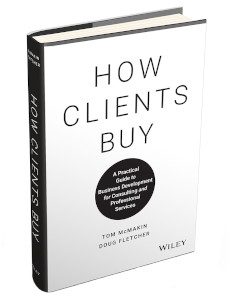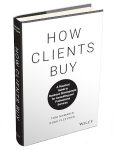Posted by Elena del Valle on July 22, 2019

Todd Caponi, author, The Transparency Sale
Photo: Todd Caponi
A podcast interview with Todd Caponi, author, The Transparency Sale How Unexpected Honesty and Understanding the Buying Brain Can Transform Your Results (see Sales specialist touts importance of transparency) is available in the Podcast Section of Hispanic Marketing and Public Relations, HispanicMPR.com. During the podcast, he discusses his book with Elena del Valle, host of the HispanicMPR.com podcast.
Todd is also a keynote speaker, workshop leader and trainer as well as principal and founder of Sales Melon.
To listen to the interview, scroll down until you see “Podcast” on the right hand side, then select “HMPR Todd Caponi” and click on the play button below or download the MP3 file to your iPod or MP3 player to listen on the go, in your car or at home from the RSS feed. Some software will not allow flash, which may be necessary for the play button and podcast player. If that is your case, you will need to download the file to play it. To download it, click on the arrow of the recording you wish to copy and save it to disk. The podcast will remain listed in the July 2019 section of the podcast archive.
Posted by Elena del Valle on July 15, 2019

Photo, video: Discovery en Espanol
For viewers curious about the life and heirs of Pablo Escobar, thought to have been one of the most infamous and wealthiest criminals of the 1980s and 1990s, Discovery en Español presented a two hour documentary (the screener was 45 minutes long) in Spanish about his wife, Maria Isabel Santos. The program aired at 9 p.m. Eastern and Pacific time July 14, 2019 and should be available through the network’s GO app beginning today. Scroll down to watch a trailer in Spanish.
Known as La Tata she was born Victoria Henao Escobar. Twenty-five years after Escobar’s death she broke her self imposed silence for the Telegramme Media documentary, a Canadian project. The film was produced by Eric Hebert and Quebecor in 2018.
Narrated in the first person by La Tata the film features archival photos, family home video and newsreel segments. She revisits locations of significance to her past such as Monaco, the building where she and her husband lived in a penthouse suite, and the home in Panama City, Panama where she gave birth to her daughter. She explains that her husband, more than a decade her senior, began pursuing her romantically when she was only 13.
Posted by Elena del Valle on July 11, 2019

How Clients Buy
Photos: Carlie Auger
Convinced that selling professional services is different from selling products Tom McMakin and Doug Fletcher dedicated a year to writing and publishing How Clients Buy A Practical Guide to Business Development for Consulting and Professional Services (Wiley, $29), a guide to business development for expert services such as accountants, lawyers, human resources consultants and strategy advisors.
“Wiley has done a nice job of supporting the book with online sellers and by offering rights overseas,” McMakin said by email when asked how they marketed the 262-page book. “Augmenting that, we launched a How Clients Buy website, distributed complementary copies to key influencers in the professional services industry, and placed books with airport booksellers.”

Doug Fletcher, co-author, How Clients Buy
“How Clients Buy was my first book, but hopefully not my last,” Fletcher said by email when asked about the book. “It’s been a wonderful experience. One of the highlights of my professional career.”
The hardcover book, published in 2018, is divided into 19 chapters and four main sections: The Problem, Obstacles, How Clients Buy and Putting the Seven Elements to Work.
“Doug and I believe that high end, highly customized expert services are sold to clients in very different ways than, say, an iPhone, which is sold on features, attributes, and price,” McMakin said. “Indeed, it is not even useful to think about selling services. A better paradigm is to think about ‘how clients buy.’ We concluded that most clients engage with would-be consultants by way of relationships, referrals, and reputation. The question that fascinated us, both solo practitioners and members of large consulting firms, is how one systematically drives those three R’s.”
“The trend toward fewer companies (which are larger and able to serve global markets) is fueling double-digit growth in the $1.7 trillion global professional services market as companies seek to outsource (either nearshoring or offshoring) non-core functions,” McMaking said to a question about how the offshoring of professional services jobs and the reduction in the number of publicly traded companies impact professional services in the United States. “Large companies face two challenges: they need to compete in a global war for top talent, and they need to remain agile to be able to pivot strategically as disruptive forces undermine markets and business models. By hiring just-in-time senior leadership in the form of a consulting or advisory contract, companies can sustain and build competitive advantage in a fast-moving, ever-changing marketplace.
The future for those who offer specialized insight born of sector specific experience is strong. In the course of our research, we were told by rainmakers that expert service practice areas are growing more global even as they are becoming more focused. A company no longer hires a local accountant to do all their work, but instead hires different accountants, who may be geographically disbursed to help them solve specific problems where they have world-class domain expertise.”

Tom McMakin, co-author, How Clients Buy
Marketers describe Generation Z as the most diverse generation in our country’s history. When asked in what ways, if any, they anticipate this will affect how and what clients buy, McMakin replied, “Just like the country is becoming more diverse, so too is the world of expert services. To succeed, professional service firms need to shrink the pond and narrowcast to specific groups of people where their experience and expertise most applies. This can be a step-up for bands of experts who might have found themselves left out of the corporate mainstream in the past. Not only can they speak to the advantage inherent to their diverse backgrounds – think consultants who rolled out of the Kenyan banking sector advising multinationals on east African trade – but true expertise, informed by a long set of relevant experiences and thoughtful reflection – floats free of the kind of constraints that have hindered diverse professionals in the past. At the same time, increased diversity in large companies is driving a thirst for more diverse input into those companies opening the door to groups of consultants with different and valuable points of view.”
Fletcher said, “With regard to Gen Z – one other point we make in the book is how clients buy today vs. how they might buy in the future. Today, generally speaking, decision makers in larger organizations are not Gen Z – or millennials. Today’s clients still prefer to hire people that they know, respect and trust or who come highly recommended by a colleague. Tomorrow’s leaders may be more willing to buy expert services more digitally – using online reviews, Skype, Zoom, and other digitally formed relationships. It’s hard to say. With today’s large expert services projects – often in the hundreds of ‘000s or millions $, these are purchased typically after long, face to face relationships are established. How clients buy ten or twenty years from now may be very different?”
McMakin is chief executive officer and partner of Profitable Ideas Exchange (PIE). Before joining PIE, he was a co-founder and managing director with Orchard Holdings Group, a private equity firm based in Cincinnati, Ohio.
Fletcher splits his time between teaching at Montana State University’s Jake Jabs, and speaking, writing, and coaching about business development in professional services and consulting. He serves on the board of directors of The Beacon Group in Portland, Maine.

Click to buy How Clients Buy
Comments:
Filed Under: Books















